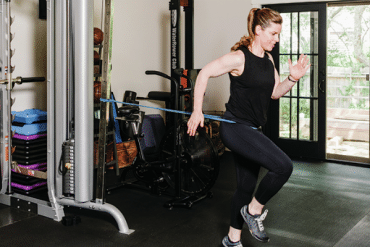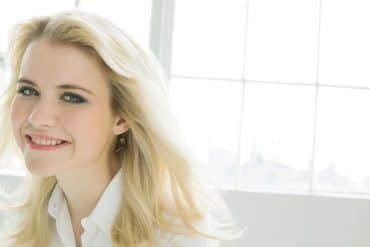 A group of children are gathered in a circle, singing enthusiastically in Portuguese. They’re all dressed in loose white uniforms, including their instructor, Andre Dobrochinski, who stands above two students crouched in the center of the circle. The others clap in time to the twang of Dobrochinski’s berimbau, a tall, stringed musical bow, while in the circle, the two players shake hands. The game is on. They cartwheel to the middle and spar with spinning kicks, dodges, and a lunging, rhythmic step. Welcome to capoeira on Nantucket.
A group of children are gathered in a circle, singing enthusiastically in Portuguese. They’re all dressed in loose white uniforms, including their instructor, Andre Dobrochinski, who stands above two students crouched in the center of the circle. The others clap in time to the twang of Dobrochinski’s berimbau, a tall, stringed musical bow, while in the circle, the two players shake hands. The game is on. They cartwheel to the middle and spar with spinning kicks, dodges, and a lunging, rhythmic step. Welcome to capoeira on Nantucket.
Capoeira (pronounced “capa-WAY- ah”) is an Afro-Brazilian form of self-defense that blends dance, martial arts, and music. Dobrochinski leads a group of about twenty kids on the island, all under ten years old, as well as a number of adults. During warm-ups, he shifts between English and Portuguese, calling the names of different movements out to his students in rapid succession. “Ginga! Cadeira! Ginga! Crabwalk! One, two, three!”
For Dobrochinski, capoeira isn’t a competitive sport. “We don’t play against the partner, we play with the partner,” he says. Still, progressing in capoeira requires years of training. This February marks twenty years since Dobrochinski stumbled into the sport back home in Brazil. He and a friend were headed to a costume party for the final night of Carnival, a three-day celebration. They lacked costumes, but his friend’s cousin was a capoeira instructor, and he lent them uniforms for the evening on the condition that they would attend training the following morn- ing. Dobrochinski showed up, and he hasn’t looked back.
The precise origins of capoeira are difficult to determine, but its history is tied to West African traditions brought to Brazil in the trans-Atlantic slave trade, which lasted for over three hundred years. Influenced by indigenous Brazilian arts, capoeira gradually emerged on plantations and in city markets, where slaves would gather in circles, singing and dancing to disguise the fighting aspect from their masters. It became a movement of culture and deception, freedom and resistance. To this day, “the martial art is hidden behind the dance,” Dobrochinski says.
After Brazilian slaves were emancipated in 1889, the country faced civil unrest, and authorities viewed capoeiristas as troublemakers. Today, despite decades of suppression, capoeira is practiced internationally. Dobrochinski’s group is part of an organization called Abadá-Capoeira. His practice is overseen by Mestra (master) Edna Lima, who runs a studio in New York City. As one of few high-ranking women within Abadá, she’s something of an icon. Dobrochinski travels to the city to train with her at least once a month. “He’s a hard worker. Stubborn, a little bit,” says Lima with a laugh. “Very passionate. And determined…the kind of student every teacher wants to have.”

Dobrochinski moved to Nantucket in 2006, following his then girlfriend, now wife, Heloisa Boas, who helps run the business. Their seven-year-old son Nickolas attends the children’s classes. Dobrochinski makes a living as a carpenter, but whenever he’s not working or with his family, he’s prac- ticing capoeira. “It’s a form of escape from the real world,” he says, “to recharge my battery, to work the next day.”
On Nantucket, the sport has gradually gained popularity amongst families after Dobrochinski per- formed demonstrations in island schools. Last fall, Dobrochinski organized a capoeira festival for a dedicated group of adults, kids, and visiting instructors. The festival, or batizado (baptism), is a ceremony marking a student’s graduation to a higher level, or corda. “The belts and levels, you can translate as responsibility,” Dobrochinski explains. He wears a green-purple corda, one notch below full instructor. “The higher you are, the more responsibility you have.”
Dobrochinski has high hopes for capoeira’s future on Nantucket. For him, and countless others, it’s more than a sport: “It’s happiness. It’s my moment. It’s life.” And in the depths of winter, capoeira might be the best way to kick the cold. To try your hand at capoeira with Andre Dobrochiniski, visit www.abadanantucket.com.





